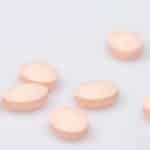Concerta is the brand name for methylphenidate/methylphenidate HCL and is considered a central nervous system stimulant medication.
It’s primarily used to treat attention-deficit hyperactivity disorder (ADHD) and comes in an immediate-release and extended-release formulation. It’s approved for anyone over 6 years of age.
The drug works by increasing the amount of the neurotransmitters norepinephrine and dopamine in the brain. This increase is what helps ease symptoms of ADHD like impulsivity.
Concerta is classified as a schedule II controlled substance by the Drug Enforcement Administration (DEA) and the Food and Drug Administration (FDA).
This means Concerta has a high potential for abuse and can lead to dependence, addiction, and serious health issues. This scheduled group also includes other stimulant drugs like Ritalin (methylphenidate) and Adderall (amphetamine salts).
Concerta & ADHD Stimulant Abuse
ADHD medications like Concerta are abused in multiple ways. Some people take high doses of Concerta while others crush the pills (either the immediate-release or extended-release tablets) and snort or inject them.
How the drug is abused can determine how intense the reaction is and how long it lasts.
ADHD stimulants are commonly abused as “study drugs” by adolescents and young adults to help them focus on studying for difficult tests. Beyond that, stimulants are abused for lots of different reasons and by many different people.
Some may even start taking Concerta to treat their ADHD symptoms and then begin abusing it later when it doesn’t have the effects they want.
Symptoms Of Concerta Abuse
Concerta abuse can create many different symptoms and they can range in intensity from mild to severe depending on how much you take, how long you’ve been abusing it, and your overall health.
The most common symptoms of Concerta abuse include:
- increased blood pressure
- increased heart rate
- fever
- insomnia
- decreased appetite
- tremors
- abdominal cramps
- confusion
- panic attacks
- headaches
- dry mouth
- nausea and vomiting
- weight loss
- prolonged erections/priapism
Concerta Withdrawal Symptoms
If you’ve abused Concerta or other ADHD stimulant drugs over a long period of time or have taken them in high doses, you likely have built up a dependence on the drug.
If you stop taking the drug after you’ve built up a dependence, withdrawal symptoms are likely to occur.
Concerta withdrawal symptoms can include:
- difficulty sleeping
- feelings of fatigue
- unpleasant and vivid dreams
- increased appetite
- irregular heart rate
- irregular blood pressure
- nausea
- anxiety
- headaches
- depression
- panic attacks
- psychosis
Side Effects Of Concerta Use
Besides the symptoms that come with abuse, Concerta can also come with side effects even when it’s taken as prescribed to treat ADHD.
The most common Concerta side effects include:
- nervousness
- trouble sleeping
- loss of appetite
- weight loss
- dizziness
- nausea
- vomiting
- stomach pain
- dry mouth
- anxiety
While rare, Concerta can also create serious side effects. If you experience any of the following, you may need to contact your healthcare provider as soon as possible:
- fainting
- seizures
- jaw pain
- shortness of breath
- sweating
- weakness on one side of the body
- trouble speaking
- vision changes
- confusion
- chest pain
Drug Interactions With Concerta
There are several medications that don’t mix well with Concerta. When mixed, the two medications can create adverse reactions that can lead to serious issues.
Some of the medications that healthcare professionals recommended to avoid with Concerta include:
- monoamine oxidase inhibitors (MAO inhibitors/MAOIs)
- certain supplements
- anticoagulants
- antidepressants
- blood pressure medications
- selective serotonin reuptake inhibitors (SSRIs)
Concerta Precautions
Several health conditions also don’t work well with Concerta. This ADHD medication can actually make the following conditions worse:
- Tourette’s syndrome
- facial/motor tics
- glaucoma
- family history of cardiovascular problems like heart attack, heart abnormalities, high
- blood pressure, sudden death, or other serious heart problems
- personal or family history of depression, bipolar disorder, or suicidal thoughts
Additionally, if you’re breastfeeding, you likely want to let your doctor know as Concerta may affect the baby.
Treatment For Concerta Abuse
There are several different forms of treatment for Concerta abuse and addiction. The severity of your addiction and what your lifestyle is like can determine the type of treatment that’s best for you.
The main forms of stimulant addiction treatment include medical detox, behavioral therapy, group therapy, and mental health services in an inpatient or outpatient setting.
For information on our outpatient treatment options, please contact us today.
Sources
Written by
Northeast Addition Editorial Team
©2024 Northeast Addition Center | All Rights Reserved
This page does not provide medical advice.




